

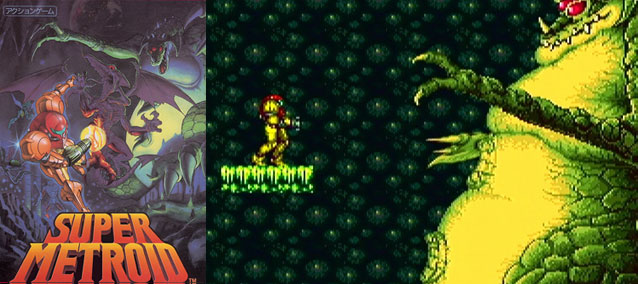
You probably won't believe me when I say it, but Super Metroid is one of the best examples of narrative in a game.
No, really.
How's that possible? How could a game with less than 100 words of text, virtually no dialogue, and no stopping to talk to an NPC of any sort tell a better story than most other games floating around in the world right now? How could a game from 1994 with a practically mute protagonist, who has no real way of emoting, be on par with something like Mass Effect, Final Fantasy 7, or Planescape: Torment?
Because you don't need words to tell a story.
To the credit of the aforementioned three games, they tell great stories. When you consider that a video game has to account for a player's actions, making a coherent—let alone interesting—plot seems an order of magnitude more complicated than running one of the Apollo missions with only a couple tin cans and some string. The fact that any game has a compelling story is tantamount to a real-life, Vatican-recognized miracle.
The plot of Super Metroid is so minimal, yet so straight-to-the-point. It evokes genuine feeling, and it does so by showing—not telling. The entire game, Samus risks life and limb, searching every tiny passageway for the metroid hatchling pilfered by Ridley from the lab to which she abandoned. It's clear that she feels guilty about what has happened, and that guilt is what motivates her to go after it.
It could be argued that her motivations run deeper than that.
She's killed every other metroid, destroying any chance for her adopted baby to have at a normal life. Its only shot at survival, let alone normalcy, was to follow Samus—the bounty hunter who should have been that metroid's greatest enemy.
That's what sets it apart from nearly every other story-driven game. I haven't interpreted this, and I haven't just made it up out of thin air. Anyone who has seen Samus' reaction to Mother Brain's killing of that same metroid can't deny that Samus has strong feelings about that tiny, orphaned creature.
That's why I think it's at least on par with some of the greatest examples of storytelling known to us. I don't have to sit and read (or listen) to Samus explain how and why she feels so bonded to that metroid. I've seen that she is, and I've seen why. And rather than telling me that I should have some kind of emotional reaction to this, Super Metroid lets me fill in the gaps with my own imagination.
As video games are in the unique position to make Samus' story my story, whatever my reaction is becomes her reaction. Sometimes vice versa. Furthermore, whatever action Samus takes is because of me, and I only take actions that are to our mutual benefit. When playing the game, we're practically one and the same.
The further I go in the game, the more it becomes clear that this is a story about a mother looking for her lost child, which puts Samus on a collision course with the original kidnapper, Ridley. So, when I make it to Ridley's Lair, deep in the heart of Norfair, I know that some shit is about to go down. The music changes, the difficulty increases, and the pace of the game is much quicker. I don't need Samus to stop and explain to me what's about to happen, or where I am. I just know. Ridley is directly responsible for the emotional and physical toll that this endeavor has put on Samus. There's no letting him go. He must die.
At this point, my palms are sweating, and I'm ready to take my made-up revenge. This fight allows me to attain the satisfaction I've been looking for the entire game. I'm gonna kick the shit out of Ridley because that is what Samus and I want. We haven't gone through this much together only to turn back now.
From this point on, the game has sparked off a fuse that leads to an ending every bit as emotionally explosive as I could have imagined. Samus goes on to fight Mother Brain, and is reunited with the hatching she's risked her life for, only to have it sacrifice itself to save Samus.
More to the point, all of this is plays out without a single line of text, and it's emotionally stirring. Coming from me, that's saying a lot. I'm not exactly the kind of guy who cried when (spoiler alert) Aeris died, or is easily moved by any sort of media. Maybe I'm dead on the inside? I don't know.
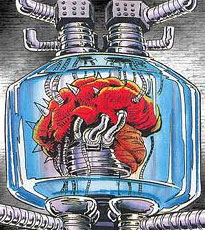
What I do know is that, the first time I played Super Metroid, as soon as Samus whipped out the Hyper Beam, I was yelling at the TV, smashing the buttons on my controller as hard as I could. I wanted to see Mother Brain vaporized into nothingness. I felt the same burning desire for revenge that Samus felt. She didn't have to tell me. By watching her actions—her heavy breathing, her vengeance fueled attack on the Godzilla-without-skin that was Mother Brain—I just knew what I had to do.
Yoshio Sakamoto, director and writer for the game, understood this. Instead of taking the easy route, and adding in some ancillary character for Samus to bounce her feelings off of, he took up the much more difficult task of telling a story through a character who has very little dialogue, and whose face is never seen in the game (except during the end credits, and kinda at the start).
In the case of Super Metroid, which stars a lone character who attempts to pass through a hostile planet, Sakamoto could only tell the story through the actions of the protagonist. Considering he's writing this for a video game, and has to take player agency into account, it's nothing short of astounding that he managed eke out a plot that was even remotely coherent, much less genuinely engaging. To hark back to what I said earlier on, this might actually be a legit miracle.
With Super Metroid, Sakamoto displays a mastery of storytelling in his chosen medium, as well as exemplifying the old TV news adage of, “Don't tell me. Show me,” which is a motto a lot of games should take to heart. The only other games that do it as well as Super Metroid are Valve's Half-Life and Portal titles—tiny drops in the ocean of games. There's a good reason narratives like Half-Life and Super Metroid are so rare—it's simply much easier to tell a story with words than it is with actions.
But, as we all know, actions speak louder than words.
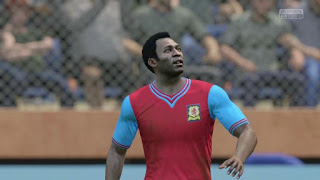


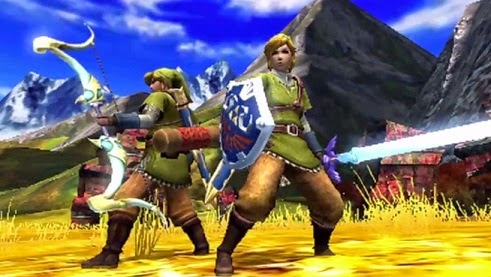
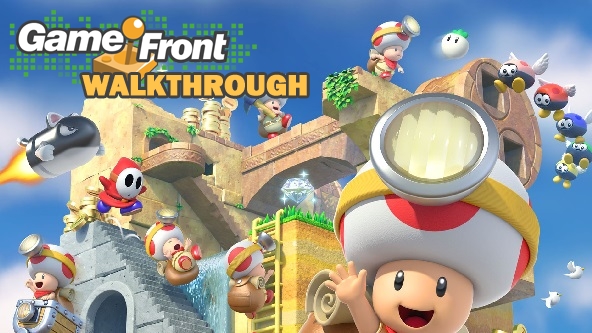 Captain Toad: Treasure Tracker Walkthrough
Captain Toad: Treasure Tracker Walkthrough Batman: Arkham Origins Walkthrough
Batman: Arkham Origins Walkthrough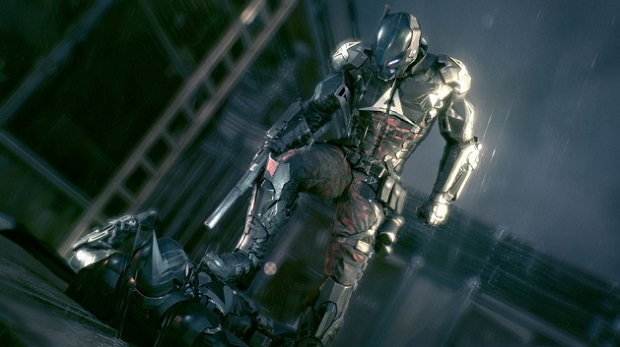 Batman: Arkham Knight Review
Batman: Arkham Knight Review Which Game From E3 2015 Are You Desperate to Play? [MakeUseOf Poll]
Which Game From E3 2015 Are You Desperate to Play? [MakeUseOf Poll] Lego The Hobbit (PC) learn to get enough resources
Lego The Hobbit (PC) learn to get enough resources